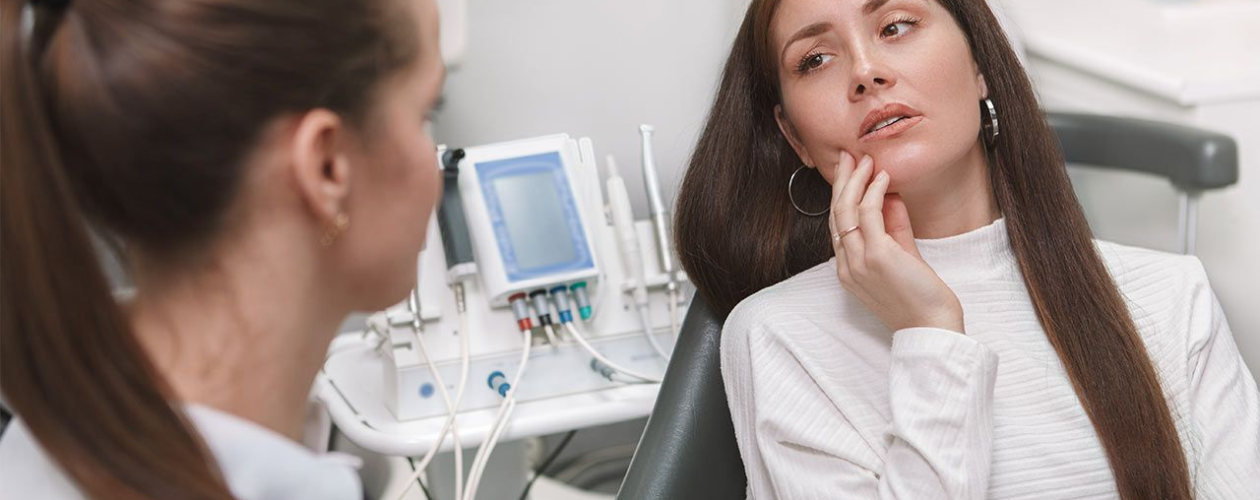Common Dental Problems: Let’s Not Ignore

Tooth problems are nothing less than an emergency no matter how minor or major the problem might be. Dental problems are varied and knowing how to handle them can actually go a long way in preventing long-term damage. Restoring good oral health with quick immediate response and the appropriate first aid treatment is the best rescue operation.
Maintaining dental care and hygiene is the best way to maintain your oral health and knowing what to do if there is a problem is the best knowledge you can receive to help yourself or someone in need.
Let’s discuss a few common problems:
Toothache:
Tooth pain or tooth sensitivity is an indicator of dental decay and the treatment is dependent on the extent of dental decay. If the dental decay is restricted to the superficial region then there might be no associated pain but sensitivity, however, if the decay has spread deep into the pulp then there are chances of persistent pain and swelling/abscess will be seen around the gums of the affected tooth.
Thoroughly rinse the affected tooth with warm saline rinse and use dental floss to remove any impacted food and visit a dental surgeon at the earliest. Any kind of medicine for pain relief is just a temporary measure and not a cure for the problem. Dental decay can either be treated by a restorative filling or if it has spread deep into the pulp then a root canal treatment may be advised. Do not delay your visit to the dental surgeon.
Abscess
Infections in the mouth can be dangerous, especially near the root of a tooth or in the space between teeth and gums. These can spread to nearby teeth and gum tissue, as well as the adjacent body parts, if left untreated.
Are you unsure whether or not you have an abscess? Look for a painful, pimple-like swollen spot on your gums. To avoid worsening your oral health problems, contact our dental surgeon right away for emergency treatment. For temporary relief, rinse your mouth with a mild water solution and apply ice to the swollen area.
Cut or Bitten Tongue, Lip, or Cheek
A minor cut can be controlled by applying pressure on the affected area along with ice application. Do remember that the cut will be sensitive to hot and spicy foods so avoid the same for a day or two
Call a doctor or go to the hospital emergency room if bleeding cannot be controlled by simple pressure.
Chipped or broken teeth
Tripping and falling are common causes of a chipped tooth. Biting a little too hard on something is the second most common reason for the same. It not only ruins your perfect smile; but also causes pain.
A broken tooth with no pain and bleeding: Restorative treatment to reshape the tooth with tooth-colored filling materials is the treatment of choice. We do want to see that wonderful smile of yours.
A broken tooth with bleeding: Rinse your mouth with warm water and place a piece of gauze over the bleeding area. Apply an ice pack to reduce swelling and visit your nearest doctor as earliest as possible that proper treatment protocol can be followed to prevent discoloration of the tooth along with complete aesthetic restoration.
Sports activities are commonly associated with tooth chipping and it’s important that you wear protective mouthguards to save your teeth. These can be fabricated as per your needs by the dental surgeon.
Knocked Out Permanent Tooth
We surely are not going to grow a new tooth but then what must be done next? Can this tooth be replaced?
The answer to it depends completely on the severity of the injury and the condition of the tooth.
What if I could not immediately restore it?
- Transport the tooth in a cup filled with the patient’s saliva or milk, not water. This will help preserve the tooth in time for emergency restoration at our dental clinic.
- The patient needs to see a dentist right away! In order to save the tooth, you must act quickly.
What if I can’t find it?
The best thing now is to look for alternative treatments such as implants to restore that perfect smile of yours and we shall be happy to help you.
Knocked-Out Baby Tooth
Make an appointment with your child’s dentist. The baby tooth should not be replanted, unlike a permanent tooth, because it may cause damage to the developing permanent tooth. In the vast majority of cases, no treatment is required.
Lost filling or crown
Crowns and fillings are used to restore the appearance and function of teeth that have been previously damaged. As a result, if this break, you must get them treated by a specialist immediately to prevent further damage or reinfection.
Broken orthodontics
Braces are strong— the metal wires and brackets are made to withstand chewing, eating, and even talking on a daily basis. Even so, they can break or detach, poking your cheeks and gums. This not only causes discomfort, but it can also stifle or even interfere with the ongoing orthodontic treatment.
If this happens, use an orthodontic wax, a small cotton ball, or a piece of gauze to cover the exposed end to avoid impingement and visit your orthodontist as soon as possible for necessary treatment.
